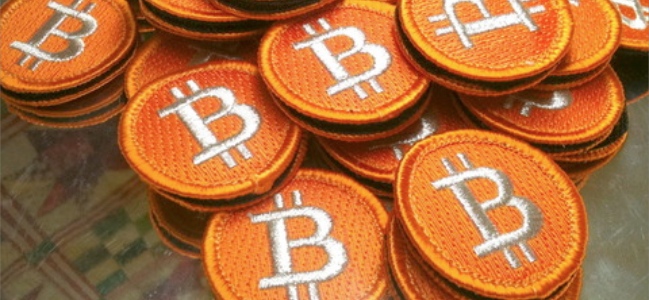Of Bitcoin and Badges.

Over at the Scoop.it site for Badges for Lifelong Learning they were, until recently, using the Bitcoin image (shown above) to represent Badges. This got me thinking of the similarities and differences of the ideas behind the two systems.
Bitcoin is a peer-to-peer currency system that does away with the need for state-level control of the monetary system. It’s run into some issues but I think it’s promising, even if just as an alternative idea. Badges, or more particularly Mozilla’s Open Badges infrastructure and the result of the DML Badges competition, are (to me) even more interesting. Using badges to support lifelong learning sounds straightforward but it’s actually a fairly nuanced idea that takes some investigation to understand fully.
The problem with both Badges and Bitcoin is that adherents get carried away with the rhetoric, talking of their new system ‘destroying’ or ‘revolutionising’ an existing one. Many present it as either/or. On the other hand, critics are never satisfied unless a rigorous, comprehensive alternative to the status quo is presented in toto.*
Whilst as an historian I’m all-too-aware that almost every person in history has thought that they live in ‘important’ and ‘unprecedented’ times, I do think that the meltdown in our financial and educational systems is a rare occurrence. I certainly can’t think of too many civilisations who have gone through what we have experienced since 2008 and lived to tell the tale. 😮
We’re in the privileged position of resting upon the work of tireless advocates of civil society, the kind of people who have campaigned for a brighter future for their offspring. I think it’s time for us to do some building of our own. Occupying Wall Street and other financial centres is a good way to protest against the current system but it doesn’t (in itself) provide much in the way of an alternative. Similarly, instead of lamenting the state of our schools and universities, it’s time to do something about it. It’s time for and/and/and.
That’s why I’ve become involved in exploring Badges, and that’s why I’ll continue to keep an eye on the direction taken by advocates of Bitcoin. As they say, if you’re not part of the solution, you’re part of the problem.**
*And on the odd occasion this does happen, they complain about the lack of consultation!
**An alternative phrasing is ‘if you’re not part of the solution, there’s a lot of money to be made prolonging the problem’.

